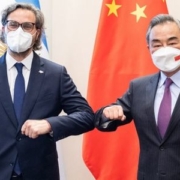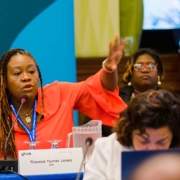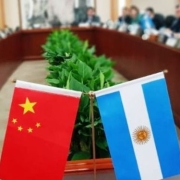Argentina will continue betting on the PPP contract modality?
With the law 27,328 approved in 2017 on the modality of Private Public Participation contract, the previous Argentine Government intended, among other objectives, to reduce the country’s infrastructure deficit, while leveraging private investment. After having confirmed only a handful of projects of those initially raised, and taking into account the criticisms existing in other countries and regions regarding this type of contracting, the question that arises is how effective this contracting modality has been so far , and what decision the new Government will make regarding the continuity or not of both the confirmed and pending projects; as of the decision to promote PPPs to boost infrastructure in the country.
“Below, we offer a google translate version of the original article in Spanish. This translation may not be accurate but serves as a general presentation of the article. For more accurate information, please switch to the Spanish version of the website. In addition, feel free to directly contact in English the person mentioned at the bottom of this article with regards to this topic”.
The contract modality of Public Private Partnerships (PPPs) or Public Private Participation (PPP) are medium or long term agreements between the State and a private sector company. PPPs apply to projects related to public infrastructure and the provision of social services that have a deficit in their financing. Therefore, together with private and governmental agents, it participates in the provision of services such as water, transportation, road infrastructure, energy, among others. (More information about APPs)
The need for capital, technology and resources has been and is necessary in our country due to the deficit that exists in infrastructure. Therefore, the PPP contract modality has been presented as an alternative to end or reduce this imbalance. Since 2000, Argentina has a legal framework that regulates PPPs, one is Decree No. 1299 of year 2000 and the other is Decree No. 967 of year 2005. However, due to changes in the international economy , these instruments were obsolete, so in 2017 a new law was approved that regulates the application of the PPP, Law No. 27,328 and its Decree 118/2017. The difference between this instrument and the previous ones is that the current one excludes or limits the prerogatives of public law of the Administration as the ability to unilaterally modify the contract, making it impossible for the private contractor to invoke the breach of the State to suspend its benefits, among others.
The Subsecretariat of PPP is the body responsible for regulating this type of contract modality. This unit, before the assumption of the current government, was in charge of 5 National Directorates: the Executive Coordination of PPP Projects, Energy and Mining Projects, Transport Projects, Communications and Technology, Water Projects, Sanitation and Housing, and Health, Justice and Education. Currently, on the occasion of the change of government, modifications are being made in this unit. So now, the PPP Subsecretariat is responsible for 3 national directorates: the National Directorate of Information and Monitoring of PPP Projects, the National Directorate of Technical Evaluation of PPP Projects and the National Directorate of Legal and Regulatory Project Analysis of PPP.
It is important to mention that the High Level Reporting Mechanism (MRAN) was also implemented in the PPP Tenders that collaborates with the Anti-Corruption Office. This mechanism is a tool for preventing corruption and / or committing ethical irregularities. It aims to provide private sector companies and other parties that are participating in the bidding process, a reliable, specific channel known to all to report alert situations such as unethical behavior and offer of bribes.
As for the projects, once the law entered into force, an Argentine Government Plan was presented that contemplated the completion of 60 PPP projects between 2018-2022 for USD 26 billion. In this framework, from Fundeps, requests for information have been made to the national State to consult for more information on this type of contract such as the organizational structure that guarantees it, the entities responsible for monitoring, and what are the projects that are in March and in what sectors.
One of the largest projects currently being developed is the ‘Highway Network and Safe Routes PPP- Stage 1’ which began in June 2018, being awarded to National and International Public Tenders for the contracting of the design, construction, expansion, improvement, repair, remodeling, operation, maintenance and commercial exploitation of different National Road Corridors. Just to mention, this process had the participation of 10 consortia composed of 19 national and 7 international companies that submitted 32 offers in total.
However, when asked about the participation in this type of projects of any of the international financial institutions such as the IDB, IDB Invest or World Bank, from Nation they could not provide us with such information, despite the fact that they exist on the websites of said projects institutions, information linked to the realization of works with this type of modality.
Undoubtedly, the short period of validity of the new regime, as well as its poor implementation in only a handful of projects to date, added to the context of the economic crisis that the country has experienced in recent years, make it impossible to do an accurate balance of how effective or not this contracting modality has been to achieve the objectives set.
With the new government, it will be necessary to follow up on the projects that are underway and observe what position it will take according to the projects that are still to begin, since the package of projects covers from the year 2018 to 2022. In turn, It is worth considering whether the new government will follow in the footsteps of its predecessor, seeking to promote this type of contracting modality to carry out infrastructure works and attract private investment or if, on the contrary, it will resort to either more traditional options that are based on strong participation and financing of the public sector; or rethinking the APP mode in some way.
Regardless of this, and already having legislation that allows this type of contracting modality, from Fundeps we consider it a priority that, when thinking and promoting this type of projects, the problems and deficits that have had in the past are taken into account and they currently have PPPs in other countries of the region and the world. Problems that are widely documented and that can serve as lessons learned to avoid damages and enhance the benefits of this contracting modality to strengthen national infrastructure.
* The information provided has been modified according to the website of the Head of Cabinet where the new government management has modified the number of national addresses. It is important to clarify that they are still updating the contents of the site according to Decree 7/2019.
Authors
Sofia Brocanelli
Gonzalo Roza
Contact
Gonzalo Roza, gon.roza@fundeps.org




